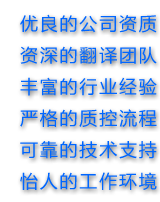巨屏受热捧 平板手机渐风靡
就像许多富裕国家居民的腰围一样,如今手机的尺寸也在逐渐增大,一些手机用户在费劲地想办法把它们塞进自己的兜里。
Like waistlines in many prosperous countries, cellphones are going XXL and some of their owners are struggling to tuck them in.
47岁的罗奇(Jeremy Roche)拥有一台三星(Samsung) Galaxy Note II手机,这款手机比苹果公司(Apple Inc.)推出的第一代iPhone差不多大了75%,大体和一块被啃掉一英寸左右的超大号好时(Hershey's)巧克力的体积和重量差不多。
Jeremy Roche, 47 years old, owns a Samsung Galaxy Note II phone that is about 75% larger than the original Apple Inc. iPhone, and roughly the size and heft of an extra-large Hershey's chocolate bar, with about an inch nibbled off the end.
华为Ascend Mate罗奇是商业软件公司FinancialForce.com Inc.的首席执行长,在英国工作,经常到旧金山出差。他说,在旧金山街头,常常有iPhone用户叫住他来比较手机的大小。他表示,我得说,当我外出的时候,大部分时间里都有人会对我的手机尺寸说上点什么。
On the streets of San Francisco, where the U.K.-based Mr. Roche frequently travels, he says iPhone users often stop him to compare their phone size with his. 'I would say most days when I'm out and about people remark on the size of my phone,' says Mr. Roche, chief executive of business-software company FinancialForce.com Inc.
他说,最初举着巨型手机打电话确实感觉奇怪,但现在他爱上了这款手机的大屏。
It 'did feel weird' at first to hold his big phone to his head for calls, he says, but now he loves his ample screen.
在经历了多年来从砖头般的庞然大物向小巧口袋设备的演变后,如今手机又踏上了回头路。韩国三星电子(Samsung Electronics Co.)因带领巨型手机重返主流,获得的评价可说是毁誉参半;该公司陆续推出了几款大尺寸的手机,比如于2011年底在美国以外地区发售的第一代5.3英寸Note。
After years of evolution from brick-size monstrosities into slim pocket devices, cellphones are going in reverse. South Korea's Samsung Electronics Co. is credited─or blamed─with bringing big phones back into the mainstream with devices like the original 5.3-inch Note, introduced outside the U.S. in late 2011.
三星移动业务首席产品长派金汉姆(Kevin Packingham)称,事实上,我们对于开创这一产品门类颇感自豪。
'We're actually proud that we've created the category,' said Kevin Packingham, chief product officer for Samsung's mobile business.
有的科技评论家当时曾讥讽这款巨型手机“傻里傻气”、“专为巨人设计”。但巨型手机的销量却实现了激增,其他手机生产商也纷纷跟风推出了越来越大的、科技专家开始称为“平板手机”的产品──手机和平板电脑的跨界组合。
Some tech reviewers at the time derided the big phone as 'silly,' and 'a phone designed for giants.' But sales boomed, and other makers have followed with still-bigger 'phablets,' as techies are beginning to call them─a cross between a phone and a tablet.
总部位于纽约的市场调研机构ABI Research称,去年,屏幕在4.6英寸及以上的智能手机发货量从2011年的180万台增至8,270万台。
Shipments of smartphones with screens 4.6 inches or larger grew to 82.7 million units last year from 1.8 million units in 2011, says New York-based market-research firm ABI Research.
正当许多科技产品制造商着力打造更小巧的产品时,2013年美国消费电子产品展(CES)上亮相的一些设备却变得越来越大。“平板手机”(phablet)就是一种比智能手机大,但又算不上平板电脑的移动设备。《华尔街日报》Ian Sherr和Thomas Gryta报道。虽然部分用户已无法想象重拾小巧手机,但是平板手机也有其劣势,包括他人异样的目光以及鼓鼓囊囊的提包和裤子。一名推特(Twitter)用户通过推特抱怨道,我真讨厌不能再在课堂上发短信了,因为我的手机太大了。
While some users can't imagine going small again, the phablet has drawbacks, including strange stares and tight squeezes in handbags and slacks. 'I hate how I can't text in class anymore cause my phone's too big,' tweeted one Twitter user.
Scottevest首席执行长、48岁的乔丹(Scott Jordan)被巨型手机革命搞了个措手不及。Scottevest销售的是多至三十几个口袋的服装,用以让客户放置手机、数码相机和其他必需品。本月初,当乔丹在拉斯维加斯一场科技展上四处转悠的时候,他发现了一个有关其公司最新款夹克样衣的问题。
Scott Jordan, 48, was caught off guard by the large phone revolution. Mr. Jordan is chief executive of Scottevest, which sells garments with up to three dozen pockets cut to hold cellphones, a digital camera and other necessities. As he roamed displays at a Las Vegas technology conference last week, Mr. Jordan ran into a snag with his latest jacket prototype.
乔丹说,我拿起了一款最新的三星设备,尝试着放进口袋,完了,居然塞不进去。
'I grabbed one of the newest Samsung devices, and put it in my pocket, and said, 'sh─, this doesn't fit,' ' Mr. Jordan says.
他立即给Scottevest的员工发了邮件,以了解是否还来得及叫停Tropiformer夹克衫的生产,并将便捷手机口袋每边增加半英寸的灵活空间。可惜为时已晚。他说,下一代夹克衫的手机口袋会加大。
He immediately emailed Scottevest employees to see if it was too late to halt production of the Tropiformer jacket, and add a half inch of wiggle room on each side of the quick-use cellphone pocket. He missed the deadline. The next production lines will have a bigger pocket, he says.
事实上,美国在平板手机的普及上处于落后地位。大屏智能手机在欧洲要流行得多,在中国、日本和亚洲其他地区更是受到追捧。中国智能手机卖家们称,他们发现有的女士把一个巨型手机放在提包里,把另一个更小的手机放在衣服口袋里,以便更轻松地取用。
The U.S. is actually a phablet laggard. Large-display smartphones are much more prevalent in Europe and are particularly favored in China, Japan and other parts of Asia. Smartphone vendors in China say they see women who carry a big phone in their purse, and a second, smaller cellphone to keep more readily accessible in a clothes pocket.
本月,中国电信企业华为技术有限公司(Huawei Technology Co.)推出了号称全球屏幕最大的智能手机,加大了对巨型手机的投入力度。该款名为Ascend Mate的手机拥有6.1英寸大屏,屏幕面积是2007年第一代iPhone的两倍多。如今的平板电脑渐趋小巧,华为这款产品的屏幕尺寸已逼近小型平板电脑,例如谷歌公司(Google Inc.)出品的七英寸Nexus等。
Last week, Chinese electronics company Huawei Technology Co. upped the big phone ante by introducing what it says is a smartphone with the largest screen in the world. With its 6.1-inch display, measured diagonally, the Ascend Mate has more than double the surface area of the original iPhone introduced in 2007. As tablet computers get smaller, the Huawei device also is creeping close to the display size of small tablets such as Google Inc.'s 7-inch Nexus.
华为Ascend Mate在一次新闻发布会上,华为表示,Ascend Mate轻薄时尚,可以单手轻松掌握。华为的发言人未就此进一步置评。这款宽度为3.4英寸的手机将于下月在中国上市。
In a press release, Huawei said the phone is 'slim and stylish, designed to fit comfortably in a single hand.' A spokeswoman for Huawei declined further comment. The phone, which is 3.4-inches wide, will be available in China next month.
已退役的大块头篮球球星、39岁的法亚德(Fares Fayad)现在是迪拜的一名顾问。他说,华为的这款手机应该配上宣传语“为大鲨鱼奥尼尔(Shaq)定制”。
Farès Fayad, a 39-year-old consultant in Dubai, says the Huawei phone should carry the marketing tagline, 'designed for Shaq,' the retired supersize basketball star.
不过,法亚德称,他过去曾认为3.5英寸的手机屏幕恰到好处,这一想法直到他用过四英寸的iPhone 5后才被改变。法亚德称,我认为自己已不能再回头去用哪怕只小一点儿的手机了。
Still, Mr. Fayad says he used to think a 3.5-inch cellphone screen was just right, until he tried the iPhone 5, which has a 4-inch screen. 'I don't believe I can go back to the slightly smaller screen,' Mr. Fayad says.
一些人类工程学专家担心巨型手机可能有带来损伤的风险。圣何塞州立大学(San Jose State University)人因工程学教授安德烈(Anthony Andre)称,由于触控全屏需增加拉伸的幅度,我们可能会开始看到越来越多由大型触屏电子设备引发的严重重复性劳损,例如对拇指的损害。
Some ergonomics experts worry large phones could pose an injury risk. 'As the stretch to reach all areas of the screen increases, we might start to see more serious repetitive stress injuries─likely to the thumbs─in larger touch-screen devices,' says Anthony Andre, a professor of human factors and ergonomics at San Jose State University.
还有一些人嗤笑“平板手机”这个昵称。由美国方言协会(American Dialect Society)组织的文字爱好者本月早些时候将“平板手机”选为本年度“留存可能性最小”词语的并列冠军。(并列获得这一殊荣的是“YOLO”,该词是“你只活一次”的英文首字母缩写,被人们用来挖苦明目张胆的愚蠢行为。)
And some people deride the very nickname. Word lovers organized by the American Dialect Society earlier this month voted 'phablet' into a virtual tie as the 'least likely to succeed' word of the year. (Tied for linguistic loserdom was 'YOLO' or 'You Only Live Once,' a term that has come to be used sarcastically for acts of brazen stupidity.)
与追随时尚潮流忽长忽短的裙子不同,大多数电脑科技产物都是诞生之初庞大,日后渐趋小型化。第一代计算机占据了整个房间。第一台数码照相机则重达8.5磅。
Unlike dress hemlines, which go up and down with fashion trends, most computing technology started huge and gets smaller. The first computers filled entire rooms. The first digital camera weighed 8.5 pounds.
手机同样也越变越小。一款早期摩托罗拉(Motorola)手机的体积和砖头不相上下。按照流行文化的设想,电子设备将继续缩小到滑稽的程度。
Cellphones got smaller and smaller, too. An early Motorola cellphone model was about the size of a brick. Popular culture imagined gadgets would continue to contract to the point of parody.
2001年上映的有关超酷男模的电影《超级名模》(Zoolander)就针对其中一个角色的小得可笑的手机设计了笑点。在2005年一期《周六夜现场》(Saturday Night Live)的幽默小品中,一名扮成乔布斯(Steve Jobs)的演员不断地推荐越来越轻薄的iPod产品,直至“iPod无影型”(iPod Invisa)才偃旗息鼓。在展示那款“iPod无影型”时,看起来压根就是没有东西的。
'Zoolander,' a 2001 movie about supercool male models, mined jokes from a character's ridiculously small cellphone. In a 2005 'Saturday Night Live' sketch, an actor playing Steve Jobs kept introducing smaller and smaller iPod models until he got to the 'iPod Invisa,' which appeared not to exist at all.
随着手机越变越大,有关“巨型”的界定标准也在不断改变。ABI分析师弗勒德(Josh Flood)称,在见到越来越多的巨型手机上市后,他将平板手机定义的尺寸上限从5.5英寸上调至6.5英寸。
As phones get bigger, the goal posts are moving on what qualifies as big. Josh Flood, an ABI analyst, says after seeing more big phones hit the market, he amended the upper end of what qualifies as a phablet to 6.5 inches from 5.5 inches.
弗勒德称,他再度上调平板手机尺寸标准的可能性极小。但是他还称,不过我确定以前人们说过智能手机最大也大不过五英寸。
Mr. Flood says it is 'highly unlikely' he'll need to amend upwards his phablet standard again. 'However, I am sure people in the past said that about smartphones bigger than 5 inches,' he says.
- 相关文章
随机文章













